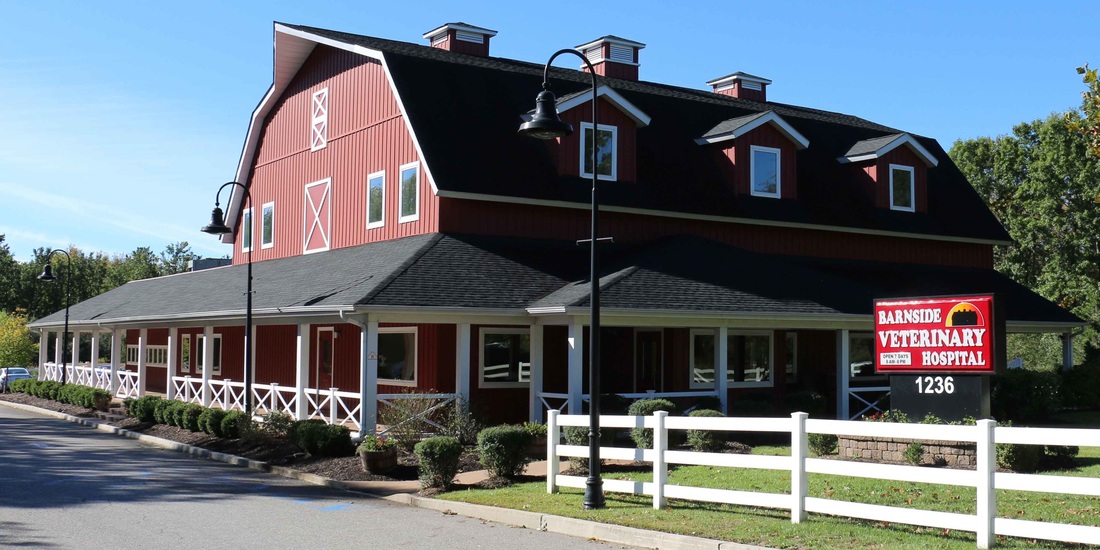Rabies is a virus that can affect all mammals. It affects the brain and is almost always fatal once symptoms develop. In NJ, over 300 animals each year are diagnosed as positive for rabies. In Monmouth and Ocean Counties, there were almost 50 cases of diagnosed rabies in 2015! Don't forget, the key word is "diagnosed." This means the animal has to be caught and tested. Countless more wild animals die from rabies.
Raccoons account for 77% of land animals that are rabid. Rabies is frequently diagnosed in skunks (14%) cats (4%) foxes (2%) and groundhogs (2%), but rabies has also been diagnosed in deer, dogs, horses, cows, sheep, goats, rabbits and ferrets. Bats are a significant source of rabies too (about 25% of all cases).
In animals, signs of rabies can vary. Some animals are quiet or depressed ("dumb" rabies.) Others are manic and aggressive ("furious" rabies.) Most wild animals prefer to avoid people and many animals such as raccoons and bats are active mostly at dusk or at night. A wild animal out during the day, in public places, may be rabid.
DIAGNOSIS: Unfortunately, the only way to test an animal for rabies is with a brain sample.
In NJ, any bite or wound of unknown cause from an unknown animal, is presumed to be from a rabid animal.
There are two areas in veterinary medicine that are involved with rabies: people and animals.
A person is bit by a known animal: If that animal can be securely confined for 10 days, then it will be monitored for illness or death. If the animal had rabies in its saliva at the time of biting someone, then it will become ill and die within those 10 days. If the animal DOES have rabies, then the bit person can still receive treatment.
A person is bit by an unknown animal: The person must start treatment immediately.
A pet is bit by a known animal: Again, the animal that did the biting will be confined. If the animal that did the biting DOES have rabies, then what happens to the bit pet depends on whether it is up-to-date on its rabies vaccine. If the bit pet IS up-to-date on its vaccines, then it should be boostered, but should be fine. If the bit pet is NOT up-to-date, then it needs to be strictly quarantined in an approved and inspected facility for 6 months.
A pet is bit by an unknown animal: If the bit pet IS up-to-date on its vaccines, then it should be boostered but it should be fine. If the bit pet is NOT up-to-date, then it needs to be strictly quarantined in an approved and inspected facility for 6 months or euthanized.
TREATMENT: There is no approved treatment for animals with rabies. If an animal is showing signs of rabies, it needs to be euthanized.
People potentially exposed to rabies need to receive Post-Exposure Prophylaxis (PEP) a series of injections with a drug called immunoglobulin. This treatment is generally safe, but not without possible side effects. Treatment needs to be discussed with a physician, but again, untreated rabies is fatal.
PREVENTION: First and foremost VACCINATE YOUR PETS!!! Avoid approaching, feeding, petting wildlife or stray cats. Secure your home against wildlife, especially bats. Bites from bats can be tiny, virtually un-noticable. If you have a bat that cannot be captured and tested, you should assume your family has been exposed to rabies. Wash any bites or wounds with soap and water and consult a physician immediately.
---Meredith L. Weltner-Sharin VMD
| Click on the links below for more educational articles on Rabies Rabies- NJ Dept of Health Rabies- Centers for Disease Control and Prevention (CDC) Rabies- Veterinary Partner Rabies- Pet Health Network Rabies- Pet Education |


 RSS Feed
RSS Feed



